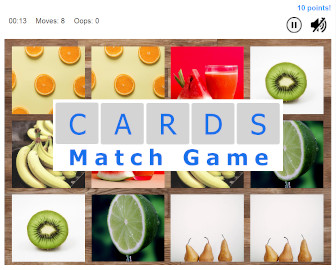What is the MIND Diet?
The MIND diet is a dietary plan designed to promote brain health and reduce the risk of cognitive decline and Alzheimer’s disease. Its name is an acronym for “Mediterranean-DASH Intervention for Neurodegenerative Delay”, combining aspects of the Mediterranean diet and the DASH diet (Dietary Approaches to Stop Hypertension).
Here’s a breakdown of what it emphasizes:
1. Brain-Healthy Foods to Include
The diet focuses on 10 groups of foods considered protective for the brain:
- Green leafy vegetables - spinach, kale, collards; aim for at least 6 servings per week.
- Other vegetables - peppers, carrots, broccoli; aim for at least 1 serving daily.
- Berries - especially blueberries and strawberries, 2+ servings per week.
- Nuts - walnuts, almonds, pistachios, most days of the week.
- Olive oil - primary cooking oil.
- Whole grains - oats, brown rice, whole wheat, 3+ servings per day.
- Fish – fatty fish rich in omega-3s (salmon, sardines) - or Vegan Alternative (Flax seeds, chia seeds, hemp seeds, walnuts, algae-based omega-3 supplements), at least once a week.
- Beans - lentils, chickpeas, kidney beans, at least 3 servings per week.
- Poultry - chicken or turkey - or Vegan Alternative (Tempeh, tofu, seitan, chickpeas, lentils), 2+ servings per week.
- Wine – optional, 1 glass per day (in moderation).
2. Foods to Limit
The diet also restricts foods linked to cognitive decline:
- Red meats
- Butter and margarine
- Cheese
- Pastries and sweets
- Fried or fast food
3. Key Benefits
Research suggests that following the MIND diet can:
- Slow cognitive decline by up to 53% in some studies.
- Reduce the risk of Alzheimer’s disease by 35% or more in those who adhere strictly.
- Support memory, attention, and executive function.
4. Why It Works
The diet combines antioxidant-rich foods, healthy fats, fiber, and anti-inflammatory nutrients, all of which protect brain cells and reduce oxidative stress and inflammation, key contributors to neurodegeneration.
Simple meal plans based on the MIND diet that’s practical for everyday use
The MIND diet can be adapted to a vegan version while still emphasizing brain-healthy foods. The key is to replace animal-based foods with plant-based alternatives rich in protein, omega-3s, and antioxidants.
Here’s how to adapt it:
Vegan Substitutions
| Original MIND Diet Food | Vegan Alternatives |
|---|---|
| Chicken / Turkey | Tempeh, tofu, seitan, chickpeas, lentils |
| Fish (salmon, sardines) | Flax seeds, chia seeds, hemp seeds, walnuts, algae-based omega-3 supplements |
| Dairy / Greek Yogurt | Soy, almond, or coconut yogurt (unsweetened) |
| Eggs | Tofu scramble, chickpea flour omelets |
| Cheese / Butter | Nutritional yeast, vegan butter, avocado, olive oil |
Vegan MIND Diet Meal Ideas
Breakfast: Oatmeal with blueberries, walnuts, chia seeds, and almond milk
Snack: Carrot sticks and hummus
Lunch: Quinoa salad with spinach, kale, chickpeas, bell peppers, and olive oil dressing
Snack: Handful of almonds or pistachios
Dinner: Lentil stew with roasted broccoli, cauliflower, and olive oil drizzle
Extra Brain-Boosting Tips for Vegans
Include omega-3s daily via flax, chia, hemp, or algae supplements.
Eat a variety of beans, lentils, and soy products for protein.
Use colorful vegetables and berries for antioxidants.
Favor whole grains over refined carbs for steady blood sugar.
Incorporate nuts regularly for healthy fats and vitamin E.



 Report a concern
Report a concern

 Add Comment
Add Comment



